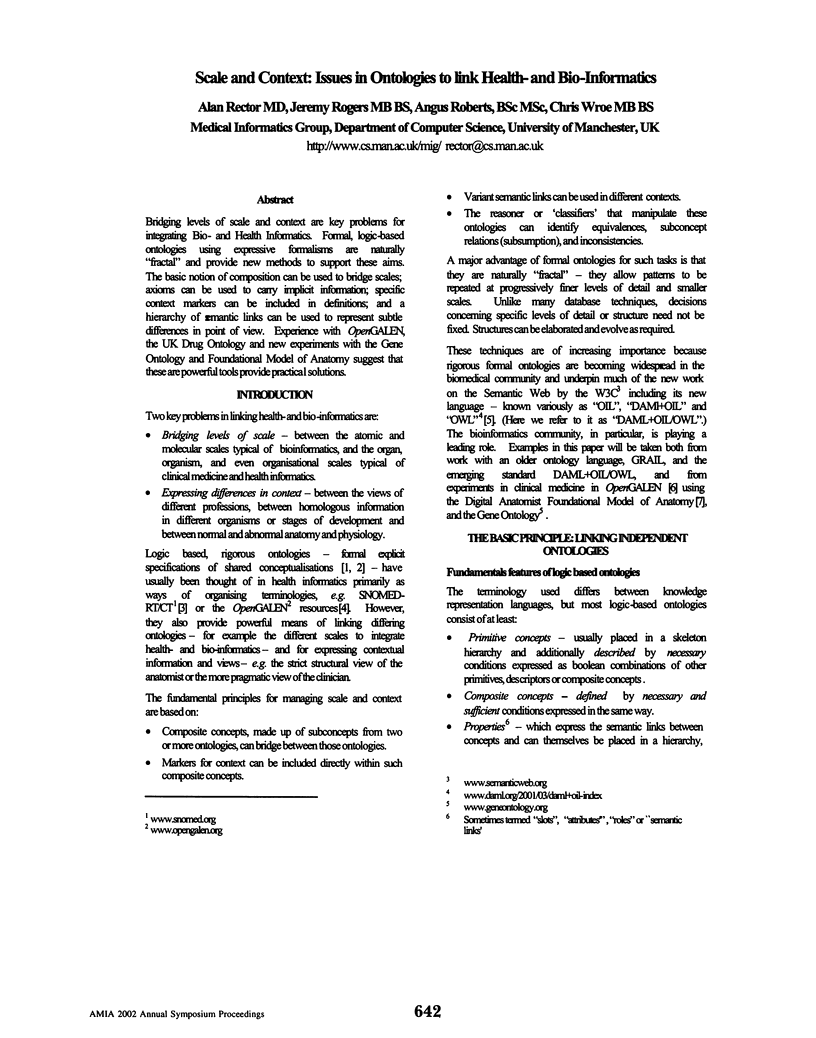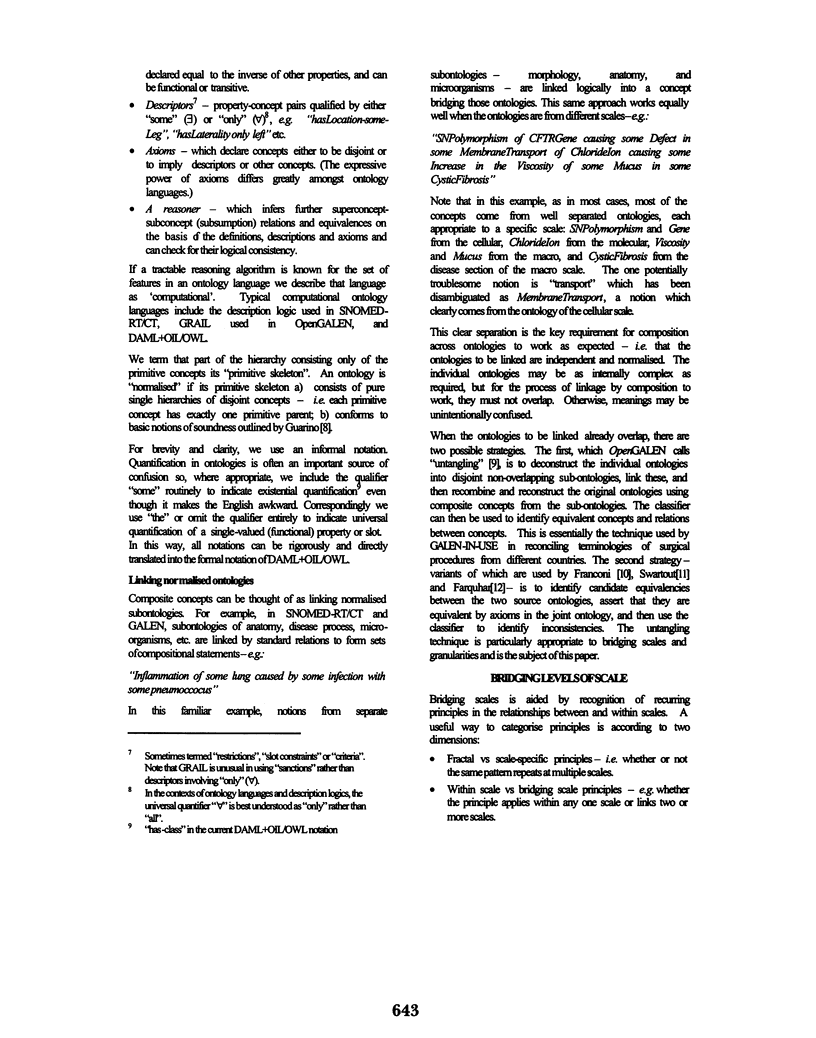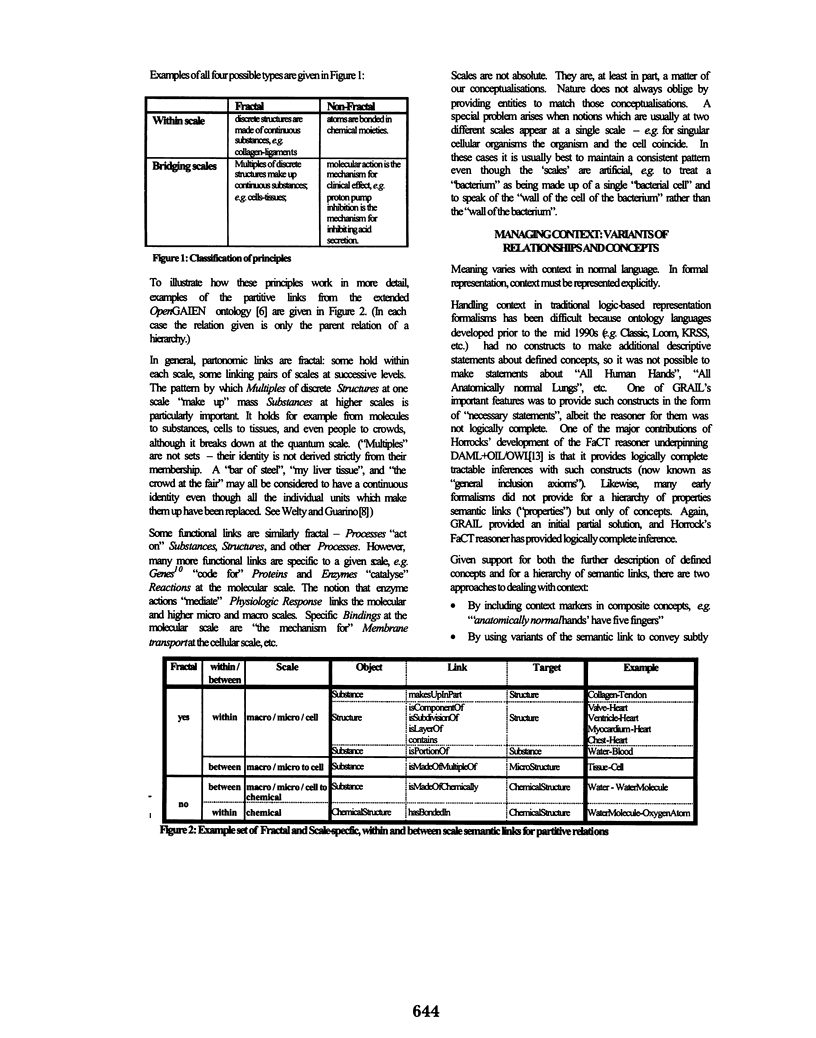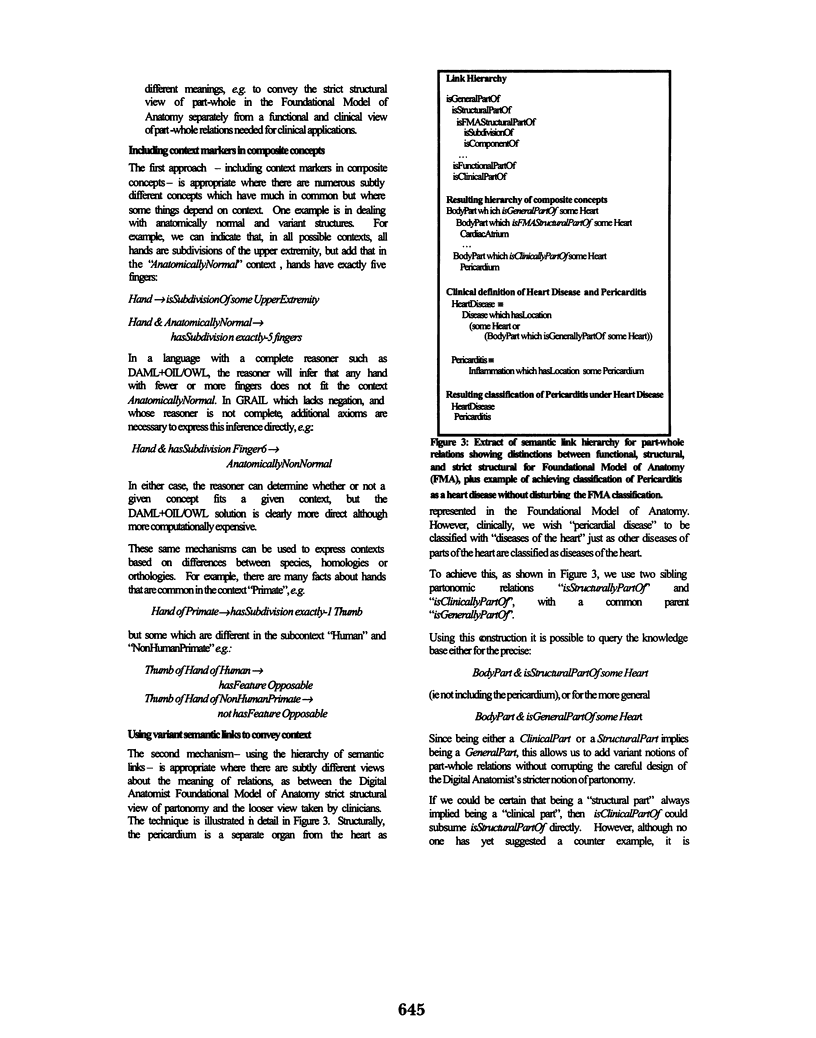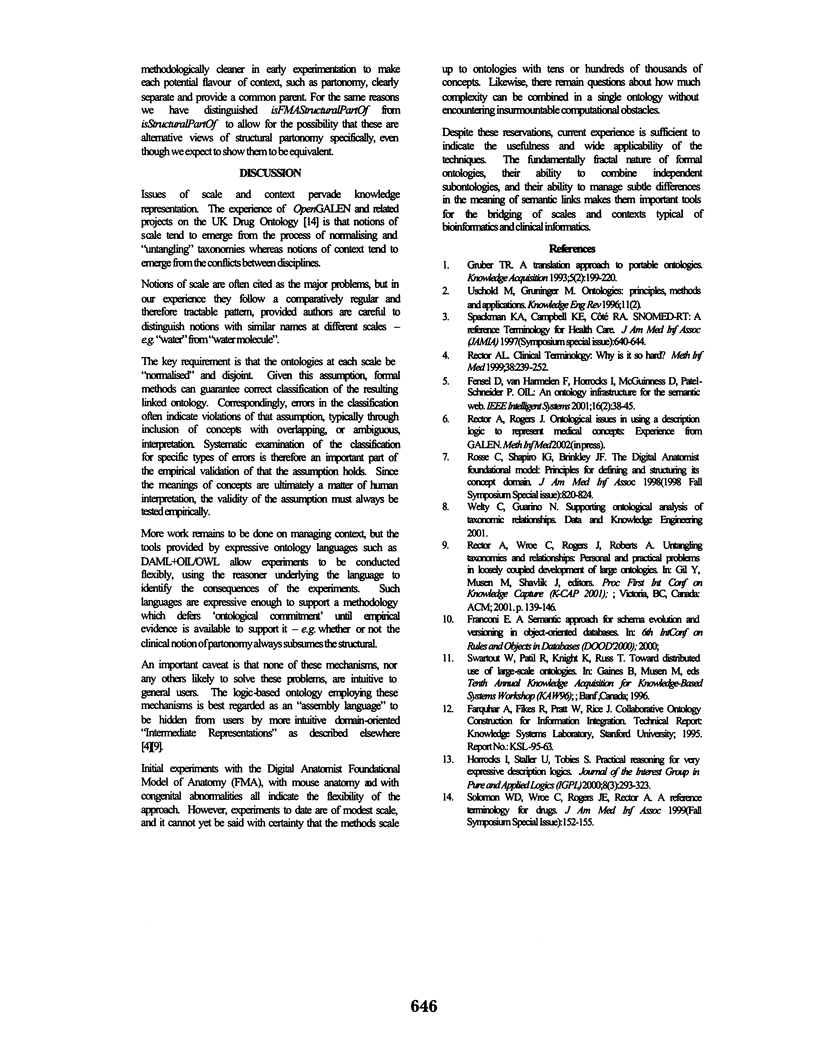Abstract
Bridging levels of scale and context are key problems for integrating Bio- and Health Informatics. Formal, logic-based ontologies using expressive formalisms are naturally "fractal" and provide new methods to support these aims. The basic notion of composition can be used to bridge scales; axioms can be used to carry implicit information; specific context markers can be included in definitions; and a hierarchy of semantic links can be used to represent subtle differences in point of view. Experience with OpenGALEN, the UK Drug Ontology and new experiments with the Gene Ontology and Foundational Model of Anatomy suggest that these are powerful tools provide practical solutions.
Full text
PDF